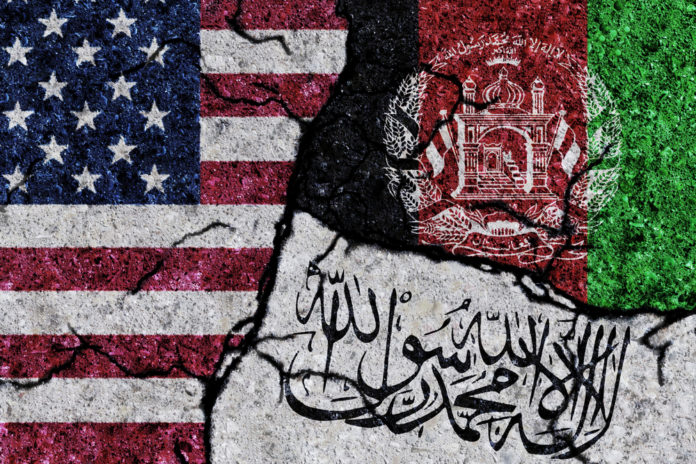The claimants had leased land in Afghanistan to the U.S. government. A dispute arose as to whether the claimants actually owned the land they had leased, so the U.S. government stopped paying rent. The claimants appealed to the ASBCA, seeking to recover the rent. The claimants contended they had a Fatwa issued by the Taliban, which declared they owned the land. The board, however, refused to recognize the Fatwa. The Fatwa had not been issued by a judges with legal training, and there was no indication the Taliban had followed due process in issuing the Fatwa. Moreover, the U.S government refuses to recognize the Taliban government. Acceptance of the Fatwa would effectively recognize the authority of the Taliban and violate the political question doctrine.
Appeal of Lessors of Abchakan Village, Logar Provence Afghanistan, ASBCA No. 61787
Background
In 2009, the Army Corps of Engineers entered leases with private parties in Afghanistan for real property. But in 2010, the Government of the Islamic Republic of Afghanistan (the Afghan Government) claimed to own the land. The Corps stopped paying rent to the private lessors until the ownership dispute was resolved.
The private lessors and the Afghan Government litigated the dispute before an appellate court in Afghanistan. That court issued a decision finding that the private lessors owned the land. The Afghan Government appealed that decision to the Afghan Supreme Court. In 2018, the Supreme Court issued a decision repealing the lower court decision. The Supreme Court held that the private lessors had not proven ownership of the land. The Supreme Court remanded to the Afghan Appellate Court of Government Property Seizure.
In August 2021, the Appellate Court of Government Property Seizure issued a decision finding that the private lessors owned the land. The Afghan Government had not received notice of the hearing before the Appellate Court and thus had not appeared to contest the private lessors’ claim of ownership. But the Afghan Government did not get a chance to appeal, because shortly after the Appellate Court issued its decision, the Afghan Government fell, and the Taliban took over. In February 2022, the Taliban issued a Fatwa, finding that the private lessors owned the land.
With the ruling from Appellate Court and Fatwa in hand, the private lessors filed a claim with the Corps seeking rent on the property from 2010 to 2019. The Corps denied the claim. The private lessors appealed to the ASBCA. Analysis
Afghan Judicial Orders
The government argued that the private lessors had failed to establish that they actually owned the land and thus were not entitled to rent.
The board agreed. Applying the Restatement (Fourth) for Foreign Relations Law, the board determined that it could not recognize either the ruling from the Appellate Court of Government Property seizure or the Fatwa from the Taliban. The proceedings leading to the judgment from the appellate court were not compatible with fundamental principles of fairness. The Afghan Government had not received notice of the proceedings or an opportunity to he heard.
The Fatwa from the Taliban was similarly suspect. The Fatwa had been issued by Taliban loyalists who lacked judicial qualifications. There is no due process in the Taliban courts, and no indication the Taliban had followed procedures compatible with fundamental fairness. Under the Restatement, the board was not obligated to recognize such a judgment.
What’s more, the board reasoned, the President of the United States has declined to recognize the Taliban as the legitimate government of Afghanistan. Were the board to recognize the Fatwa, it would violate the political questions doctrine—that is, a judicial body would be stepping in to answer a political question dealing with foreign relations. Political questions must be decided by the political divisions of government.
Documents
The private lessors contended they had a deed and other documents that demonstrated their ownership of the land. But the board found that it was precluded from considering those documents by the Afghan Supreme Court decision. The Supreme Court had held that these documents did not establish the private lessors’ ownership. Under the Restatement, that Supreme Court decision was entitled to recognition as a final judgment. In accordance with the doctrine of issue preclusion, the Afghan Supreme Court’s decision was conclusive.
Act of State
Finally, the board found that it was precluded from ruling on this claim under the Act of State doctrine. Under that doctrine, a U.S. tribunal cannot inquire into the validity of the public act of a recognized sovereign power. Here, the previous Afghan Government, which the U.S. had recognized, had asserted ownership of the land. The board could not declare this official position of a sovereign government invalid.
The Lessors of Abchakan are represented by Keith J. Feigenbaum, Michael E. Barnicle, Peter Vogel, and Jessica Nejberger of Arnold & Porter Kaye Scholer LLP as well as Charles B. Lewis of Duane Morris LLP. The government is represented by Michael P. Goodman, Cara M. Mroczek, and Rebecca L. Bockmann of the Army Corps of Engineers.
–Case summary by Craig LaChance, Senior Editor




